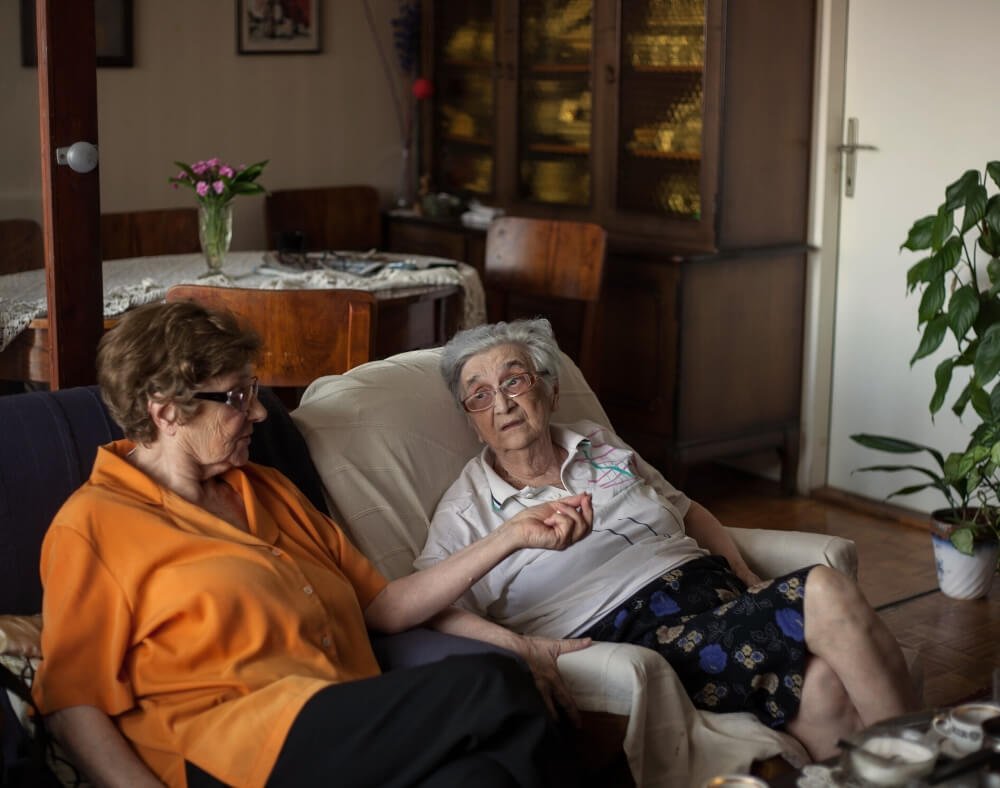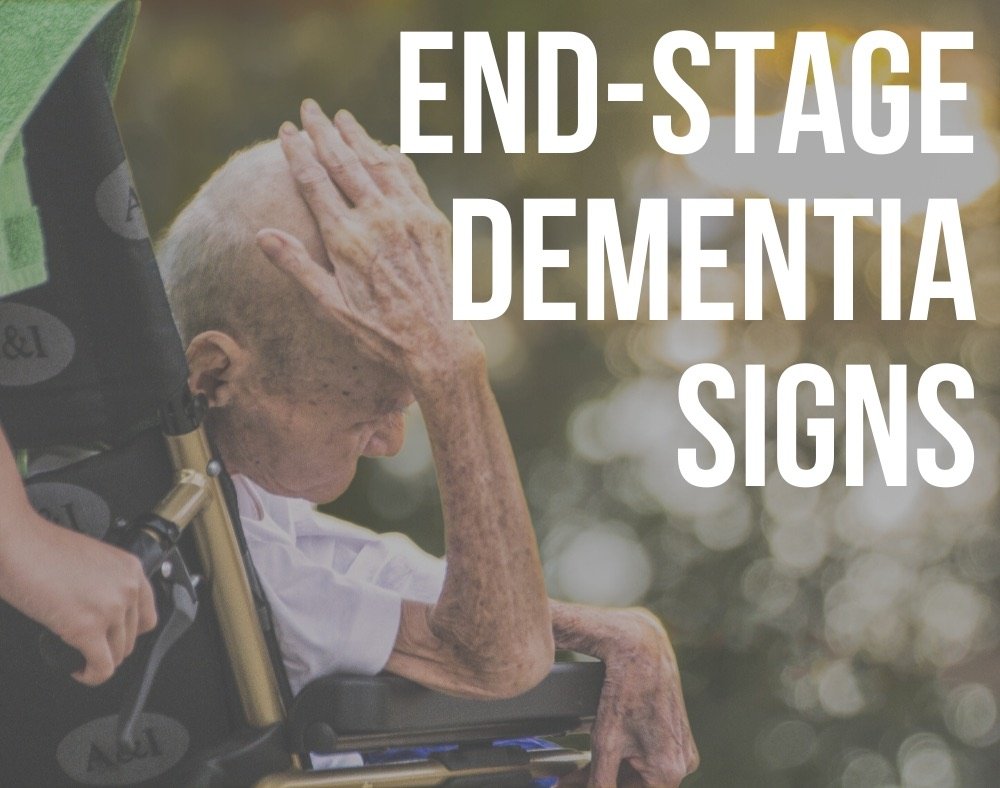We noticed multiple different end-stage dementia signs over the course of 10 years of our experience with this deadly condition.
This essentially means that the person with the disease and caregivers should start preparing for the affected person’s demise.
It is important to note that the illness affects people differently. Thus, the severity or timings of the end-stage WARNING signs may vary from one person to the next.
After diagnosis, most people will live between 4 to 20 years.
Before their final days on earth, a person who has dementia may showcase several symptoms.
Below we will discuss seven of the most common signs that occur during the last stage of dementia.
Most Common End-Stage Dementia Signs
1. Trouble Communicating

You will notice that many people with dementia at the onset have a little bit of trouble communicating with others. This becomes WORSE as the years go by.
During the severe/last stage of dementia, the ill person will have significant communication issues. Some only use expressions or words sparingly to express themselves.
Most people do not verbally communicate at the very end. During the later stages of dementia, affected individuals may not be able to understand when other people talk to them.
In the event of no speech, persons with dementia may use facial expressions, body language, or show agitation to communicate their feelings and needs.
2. Health Problems

A wide array of health problems belong to the category of end-stage dementia signs.
This is where a person with dementia may become frail and prone to illnesses like infections such as pneumonia, pain or discomfort.
UTI’s (Urinary Tract Infections) are particularly common in the end stages. These can speed up the progression of the disease or cause more confusion in the people who have dementia.
Some persons may experience more side effects with the medications they are taking. Health problems may also include problems with vision, hearing, and mobility.
If treatable, any health conditions must be QUICKLY diagnosed and taken care of.
In addition to medication, caregivers should also try non-drug approaches like a massage and other alternative therapies to help offer relief to the persons with the illness.
3. Severe Memory Loss

When a person with dementia gets to the final stages of the illness, high chances are that they will have SIGNIFICANT memory problems.
They may lose the ability to remember even the most recent memories.
For instance, a person may not recall what they have just eaten or who they were speaking to an hour ago. A high percentage of persons with the illness believe that they are living in earlier times, for example when they were still teens.
This implies that they may start to behave or using words that may not make sense to people around them.
The affected person may also lose their ability to recognize themselves or other individuals close to them, like children, friends, colleagues, and neighbors, etc.
4. Incontinence and Toilet Issues

Another example of end-stage dementia signs is toilet problems and incontinence. As the illness progresses, there is a possibility that the person will EXPERIENCE some accidents while trying to use the washroom.
It can be anything from the occasional urine or fecal leaks or a total loss of control when the person needs to use the toilet.
Many factors can cause this, such as:
- Forgetting where the facilities are or forgetting to visit the toilet in time
- Constipation
- UTI
- Not recognizing the need to use the toilet
- Prostate gland issues, etc.
To avoid inconvenience, there are many incontinence products that patients with dementia can use.
5. Problems with Mobility

People with dementia may also experience mobility issues as they go through the last stage of the disease.
Most people will lose their ability to stand, walk or get up from a bed or chair gradually.
At this point, the affected individuals may start to experience more falls.
While not all people with dementia will have mobility problems, the issues may be brought about by dementia, balance problems, medical conditions like stroke, drugs, and the environment, amongst others.
People with mobility problems are likely to DEVELOP other issues, like bedsores because they can sit or sleep in one position for a long time without moving.
When mobility decreases, the person with dementia is also at risk of blood clots and other infections.
6. Problems with Eating and Drinking

Changes in eating and drinking patterns are also considered to be part of end-stage dementia signs.
Most people will lose their appetite, which makes them eat less. As a result, most people with dementia will lose weight in an unhealthy manner.
Losing weight may have an effect on a person’s IMMUNE system, making it harder for the body to fight off other diseases.
Many people will have a problem with eating and drinking because they develop mouth sores or have problems swallowing.
Swallowing issues arise when a person’s reflexes and muscles cease to function correctly.
7. Loss of Independence

When talking about end-stage dementia signs, it is only right to mention that a person with the illness may lose their independence. This means that they cannot do simple daily tasks on their own.
They have to rely on caregivers to assist with tasks like taking a bath, dressing, walking, eating, brushing teeth and so forth. This usually means that a person cannot live on their own.
A person must get all the care they need so that they do not suffer too much before they exit the earth. If it is NOT POSSIBLE to offer the support that a person needs at home, it is best if they move to a facility that will take care of their needs.
In the end, even though dementia is fatal, most will die of medical complications that are related to dementia.
For example, a person’s death may be a result of aspiration pneumonia or a blood clot as a result of being bedbound and immobile.

